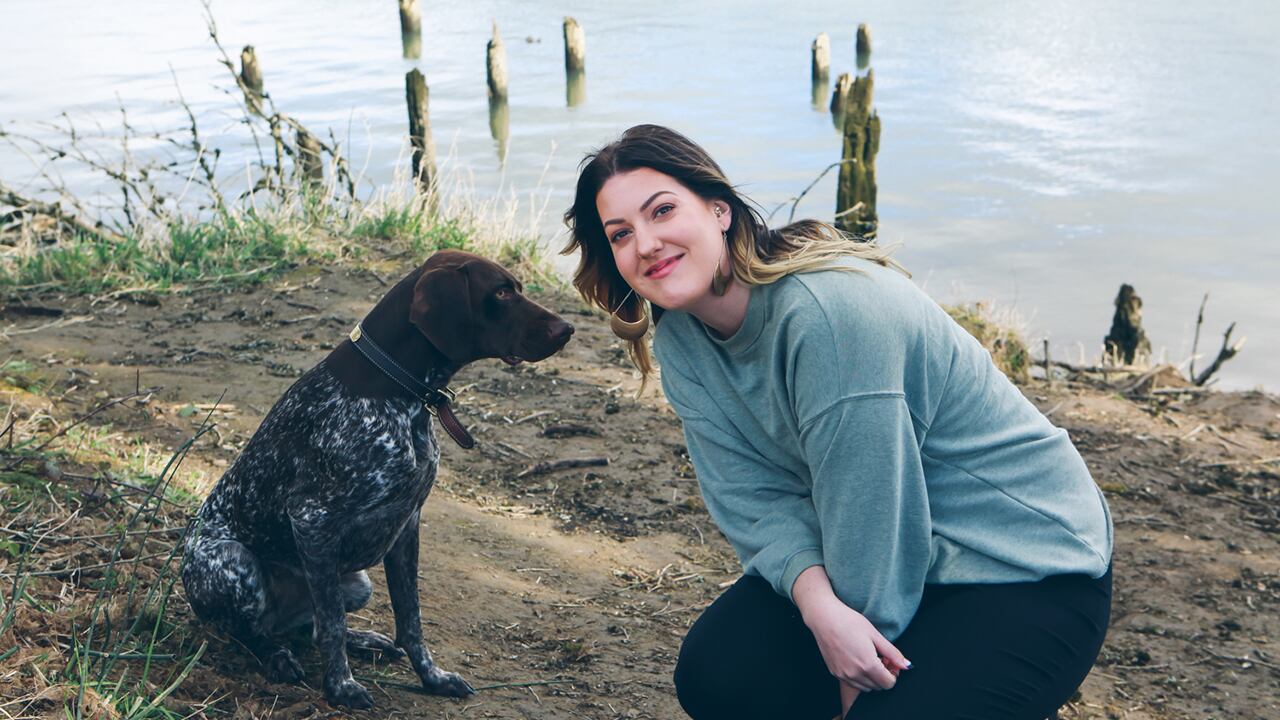When my nanny, Sabbath Mikelson, turned in her notice last month, I was more than a little heartbroken. (Finding child care during COVID-19 is no joke.) Then she told me the reason she was quitting was because she was running for a seat on the Columbia County Port Commission, hoping to bring an environmentally friendly, Gen Z approach to a largely industry-focused political seat.
That got my attention.
Mikelson, 24, lives in Scappoose, Ore. She grew up in a suburb of the Bay Area and moved to Oregon when she was 20, to live with her brother and attend community college. On May 18, she faces Brian Fawcett, who was previously running unopposed for the port commission seat, a job that pays $12,000 a year and oversees 2,400 acres of land. Among the issues Mikelson is concerned about: a possible refinery for renewable diesel at the deepwater port.
April 22 is Earth Day. Most people Mikelson’s age fear that politicians will not address climate change before its effects turn catastrophic. She’s running for an office where she might make a small difference.
We sat down last week for a conversation about why anxiety over climate change is activating young people to get involved in politics, how she’s dealing with age bias, and why she hopes to mobilize her generation, a voter base largely ignored by other candidates.
WW: Can you tell me how you got involved in politics in Columbia County?
Sabbath Mikelson: I’ve always been really political. I started to go to college with the intention of getting my degree in political science. But I had to drop out because it was just simply too expensive. I met a woman who was running for office here in my county, and I offered to volunteer my time and my service. That’s how I really got my feet wet with politics in Columbia County.
You told me your opponent was running unopposed and that’s why you decided to run. Can you tell me about that decision?
I waited to see who was going to put their name in the hat and, on the last day to file, only one person had filed. They were going to have a [conservative] majority on that board.
In my county, [despite] our proximity to a major metropolitan area, we are one of the last untouched areas, and we have this land and this riverfront that are so beautiful. And it’s almost cartoonlike the way that you sort of see industry or politicians in the background kind of rubbing their hands together, just waiting to get ahold of this land.
I had just gotten home from work, and my friend called me and was like ‘Hey, nobody else has filed for the seat, and he’s going to go unopposed if you’re not there in 45 minutes.’ And it’s funny because usually you would take photos of you filing to run, but I had spit-up on me, greasy hair, no makeup. I was in sweatpants.
When I was 24, I would have been completely scared shitless to run for office; I wouldn’t have thought I was even allowed to. What about you?
It’s funny: I actually made a TikTok which was turning things people said to me when I filed into inspirational quotes, and it was like, ‘Wait, are you even old enough to do that? Don’t you have to have a degree? What’s a port commissioner?’
This race almost went unopposed because nobody thought they could win, and that makes me so angry. We don’t have the luxury or the privilege or the time to be waiting for an easy race. It’s not about whether or not I can win—it’s about whether or not I’m willing to try.
Let’s talk about that urgency for a second. Obviously, a lot has been written about how climate change is a top source of anxiety for Gen Z. How do you see that anxiety fueling action with you and with your generation?
For older generations, I think politics has been about comfort, fighting over what’s going to be most comfortable for whom. For my generation, there’s no space for comfort. It’s about survival, honestly. Climate, economy—my generation simply doesn’t have the privilege of wondering whether it’s going to be comfortable to do something. We have to do something.
Do you think being younger and more plugged into modern media makes you a stronger candidate?
People get really snide in politics, saying people don’t pay attention or they’re not informed. But I would argue that the information is intentionally gate-kept, and then we shame people for not knowing better. My generation has one of the lowest voter turnouts historically. My county doesn’t even send out a voter’s pamphlet for these [special election] cycles, so how can we possibly expect young people to know about what’s going on, or want to know about what’s going on? Especially when we do see that if young people have the audacity to throw their name in the hat or to get involved, the first thing that is said to them is, “What do you know, you’re a child”?
